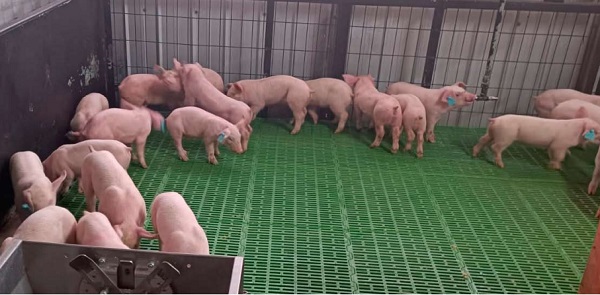Preventing porcine circovirus type two (PCV2) is the objective of the project led by Dr. Álvaro Ruiz Garrido, associate professor of the Department of Pathology and Preventive Medicine of the Faculty of Veterinary Sciences of the University of Concepción. “This is a project that has just been awarded in March and we are currently in the administrative process of signing agreements between the University and the National Research and Development Agency (ANID), so that after that, work will begin no later than in June”.
This is a project that was awarded 200 million pesos and that will finance research that aims to continue developing a prototype vaccine against porcine circovirus type two, an agent of a viral disease, not transmissible to humans, which It affects both young and adult pigs, producing a strong economic impact on pig production.
“It is an endemic disease that is present in the country and throughout the world. It is a virus that is found in lymph nodes, therefore, it makes animals susceptible to secondary infections. This is a disease for which it is mandatory to vaccinate, there are 3 commercial vaccines in the world, which are very expensive, and when we started the research we wanted to see the possibility of finding a cheaper alternative and see if we could reduce viremia or prevent it”, explained Dr. Álvaro Ruiz.
The expert also stated that among the first tasks to be carried out, the production of the necessary antigen that is stable over time is considered, “for that, different batches must be produced and kept in the refrigerator and check that they remain immunogenically active, then, the The first stage is laboratory, which aims to improve and standardize the production of this vaccine prototype and demonstrate that it is stable over time, and then we begin with tests on pigs. This project includes four different trials in pigs, the last one, which would be at the end of the second year, is the largest and includes the largest number of animals”.
The vaccine seeks to reduce the economic impact generated by this disease throughout the world, since if vaccination is stopped, the disease reappears, then current vaccines have controlled the disease, but they have not been able to eradicate it, nor eliminate the viremia effectively. In this sense, Dr. Ruiz pointed out that “it has an economic impact of around 10 dollars per fat pig produced. In Chile, an average farm in intensive production has a thousand mothers, that is 650 piglets more or less that are produced per week. Vaccines that are currently available for this disease cost about $1.5 per pig. This cost is higher than the cost of vaccines for other diseases, which is usually around $1. This higher commercial cost of the vaccine for the control of porcine circovirus type 2 gives us an idea of the economic impact it can have”.
Finally, Dr. Ruiz stated that “it is important to highlight that this project, once again, confirms two things: the level of technology and science that we can do in the Faculty of Veterinary Sciences, and the interdisciplinary work between faculties, since Professionals from the Faculty of Biological Sciences also participate in this project. Additionally, this project considers work with undergraduate and postgraduate students”.
In addition, the project has the support of two associated companies: Agrícola Chillán Viejo, a subsidiary of Maxagro, the second largest pig producer in the country; and Microsules, a Uruguayan pharmaceutical company.
Text: UdeC Veterinary Sciences
–


